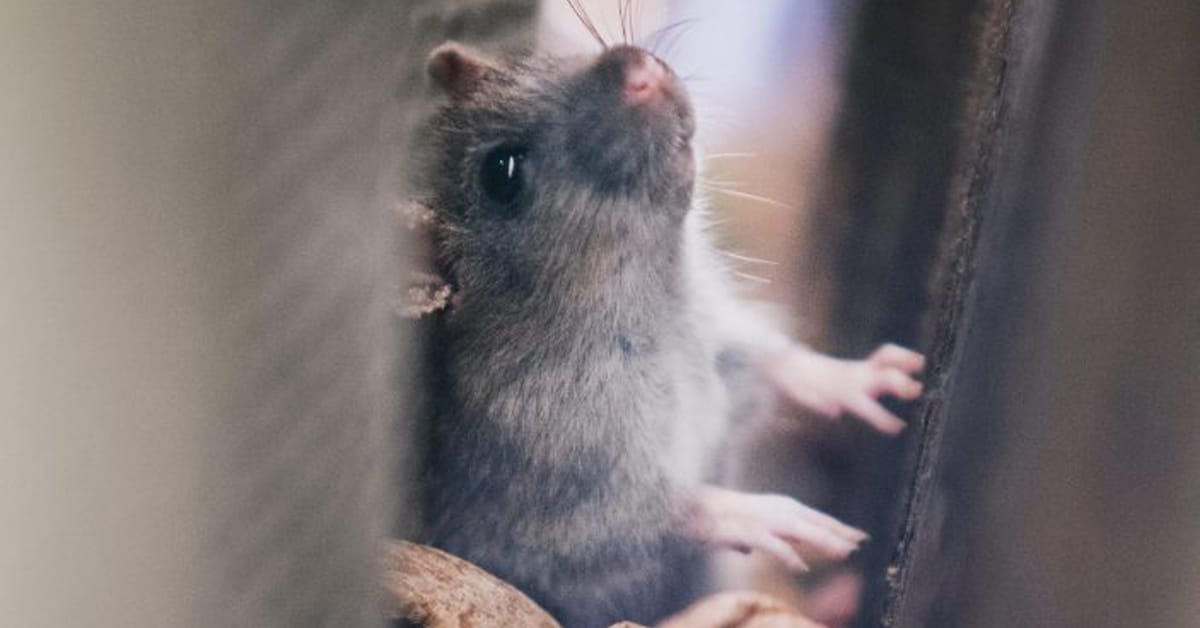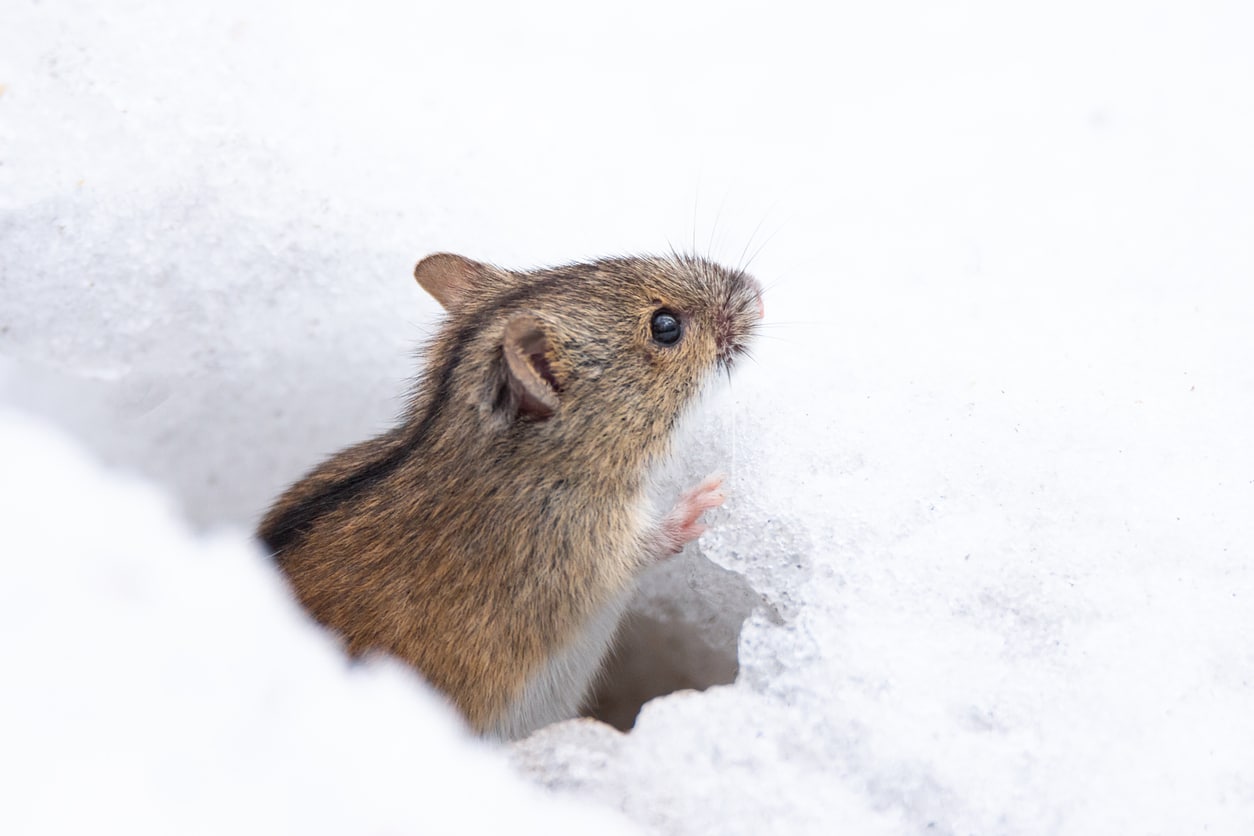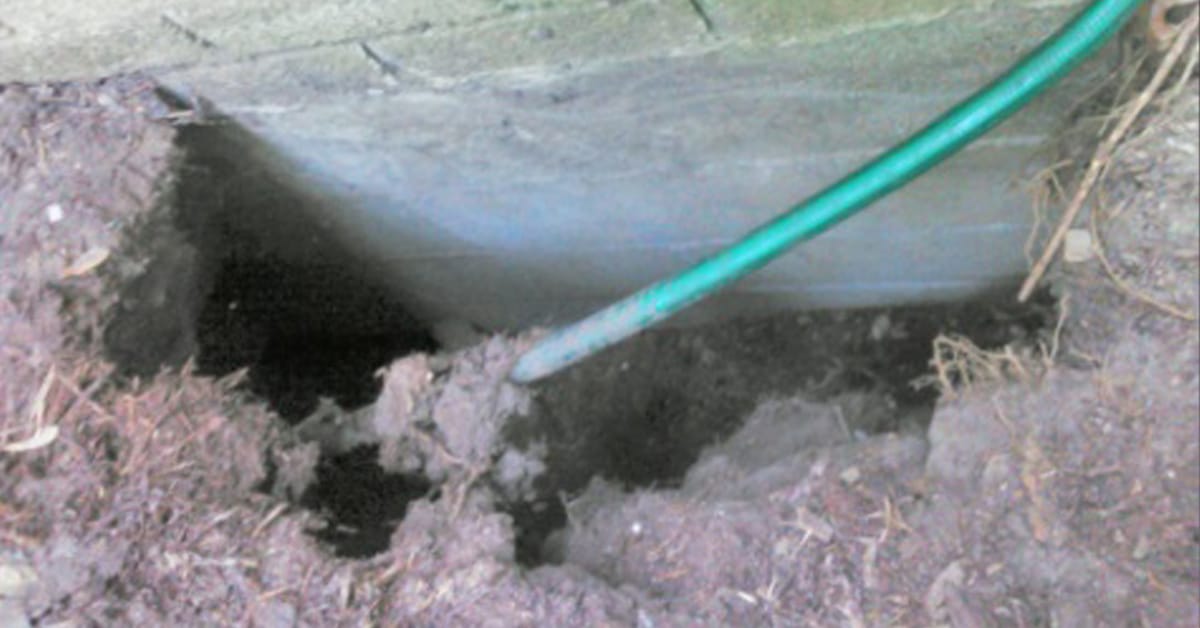With holidays, good food, and hopefully some time off from work, winter is a great…

How to Tell If the Noises I’m Hearing are Rodents?
Homeowners know that a house makes lots of sounds—anything from the siding expanding in the summer, to attic beams contracting in cooler air, to the mysterious creaking sound of “the house settling”. There are, however, some sounds that are absolutely anxiety-inducing for any homeowner: the sounds of rodents in the house. Perhaps you have heard scratching in your walls at night, or the pitter-patter of something in the ceiling. These sounds may indicate a rodent problem.
How can you know if the noises you’re hearing are rodents?
The tell-tale sign of a rodent problem—whether it be rat, mouse, or squirrel—is the sounds they make. Although rodent sounds may be similar to those of bats, birds, or raccoons, there are subtle differences that can help you identify what might be causing them.
The points to pay attention to are the time, type, and location of the sound.
What time are you hearing the noise? Rodents typically wait until night to move around, when the house is quiet. Activity and chirping throughout the day suggests birds (like starlings or swallows) nesting in the attic more so than anything else. Birds are diurnal and are more likely to make noise throughout the day than rodents. If starlings or swallows are nesting in your home, you would hear localized flapping, thumping and chirping in a corner of your attic. Similarly, scurrying at first light or early evening is more likely to be a squirrel.
What type of sound are you hearing? Rats and mice communicate among themselves with ultrasonic vocalizations indiscernible to the human ear. Although we can occasionally hear mice squeak, it is much more likely you will hear their traveling sounds—scurrying, scraping and gnawing sounds in your walls, ceiling and floor. Bats will also make scraping sounds, but here’s a way to tell the difference: knock on your wall. Rats and mice will temporarily quiet down, whereas bats are known to continue to scratch, sometimes even “responding” to the knocking. Bat scratching also tends to be slow, whereas rodent scurrying is swift. If the sound you hear is a “rolling” sort of sound (like marbles being scattered), this is most likely a squirrel, while thumps and slow, heavy walking is more indicative of a raccoon than rodents.
What location are you hearing the noises at? Some locations are favored by rodents, such as the kitchen. Also, while other animals like raccoons, squirrels, and bats will generally favor the attic area, rodents are more likely to be active at ground level. If you hear scurrying that seems to be coming from inside the wall behind your baseboards, or in the basement, or beneath the floor, this is almost certainly a rodent. Mice can certainly get into attics and be active at the roofline too, but activity at the ground level is almost always some sort of rodent.
Creature Control Can Help! Whatever sorts of noises you are hearing, you can try to self-diagnose them using Creature Control’s Noise Identifier. Alternatively, you can call us at 800-441-1519 or contact us by email for an appointment. Our technicians diagnose these sorts of problems day in and day out and can not only identify but solve your nuisance wildlife problem so that you don’t have to live with creepy noises at night anymore.


